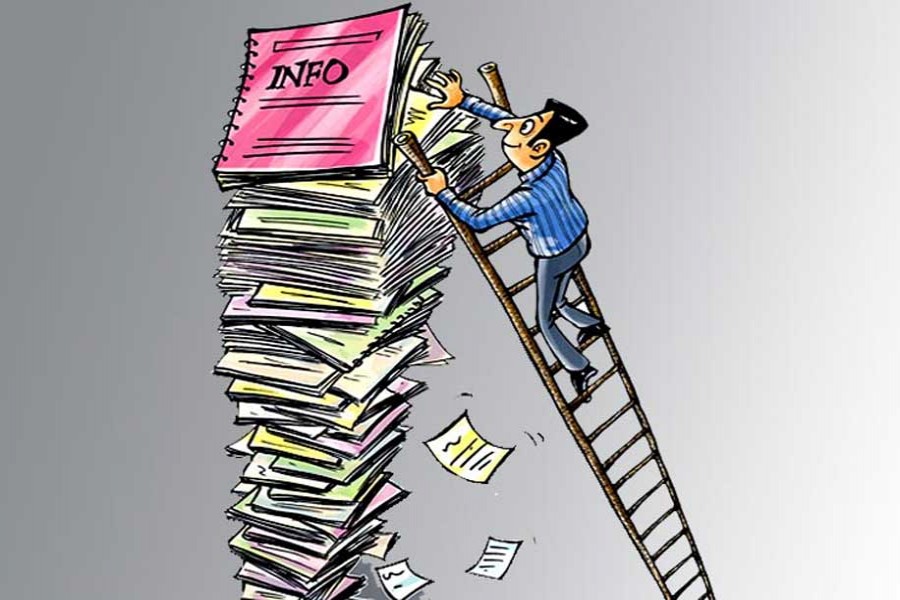
Published :
Updated :

It has been nearly a decade since the inception of Right to Information (RTI) law in Bangladesh. Introduced about the same time as India, Bangladesh's ranking in terms of implementing the RTI Act has lagged behind. Bangladesh slipped to 29th position in 2018 as compared with India's ranking at 6th. According to the rating of Canada-based Centre for Law and Democracy (CLD), conflict-ridden but rebuilding Afghanistan topped list in South Asia. It was followed by Sri Lanka, India, Maldives and Nepal. Bangladesh only keeps its nose ahead of Pakistan having 33rd position. The point to be noted is that despite a relatively weaker infrastructure in Bangladesh, it had scored better earlier on. So, why is it slumping now? This is worth examining up close. Is it because of enforcement failure, infrastructural inadequacy or limitations of the law?
The Information Commission's own findings are both authentic and revealing. The journalists were using the Act increasingly; not so much deriving information as such but by way of filing complaints of inaccessibility to information or delays in furnishing information that amounts to denial. The rising rates of complaints, though a measure of using the law, however only go to expose implementation shortcomings. The complaints increased from 17 per cent in 2015 to 21 per cent in 2016 to 31 per cent in 2017. The trend of not providing required information attests to the cracks of the system. The ball rolls into the court of public administration ministry; the shortage of field-level officers being put at 0.4 million. The number of information officers is 5,000 across the country. The numbers though important, are not the sole determinant of efficiency in disseminating information. The commitment, approach, positive sense of obligation to furnish information, placement of designated employees or creation and activation of cells of information are standard ways to go about the task.
There is a strong rationale for reviewing the stipulation of 20 working days before providing governmental information to journalists. What use would a journalist have with a stale news like that? Of course, the value of attributed news is immense in making useful analysis; yet while competing with the audio-visual media covering real-time news, a print media person will be hugely disadvantaged in that kind of a scenario.
Then, there is the civic or public interest-related transparency and accountability aspects of governance and development activities that the RTI Act is supposed to be invoked for. The RTI experts often maintain that there is an acute shortage of demands for information among the public. Information Commission officials corroborate this view. Unless people come forward asking questions and seeking data that touch their daily lives the public officials may miss out on what needs to be addressed on a priority basis. Awareness-building about the law and the procedures to obtain information must be stepped up into a campaign proportion. Handbooks and roving workshops can help retool an outreach strategy with newer demands created for a wider application of the RTI Act. The semi-government and private sector organisations must be prepared to come under its orbit.


 For all latest news, follow The Financial Express Google News channel.
For all latest news, follow The Financial Express Google News channel.